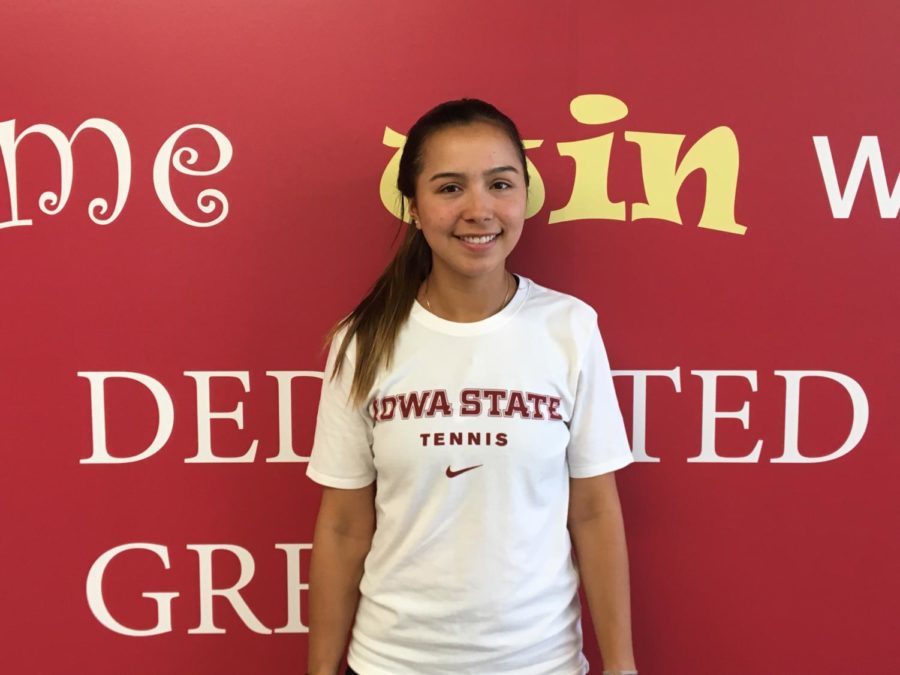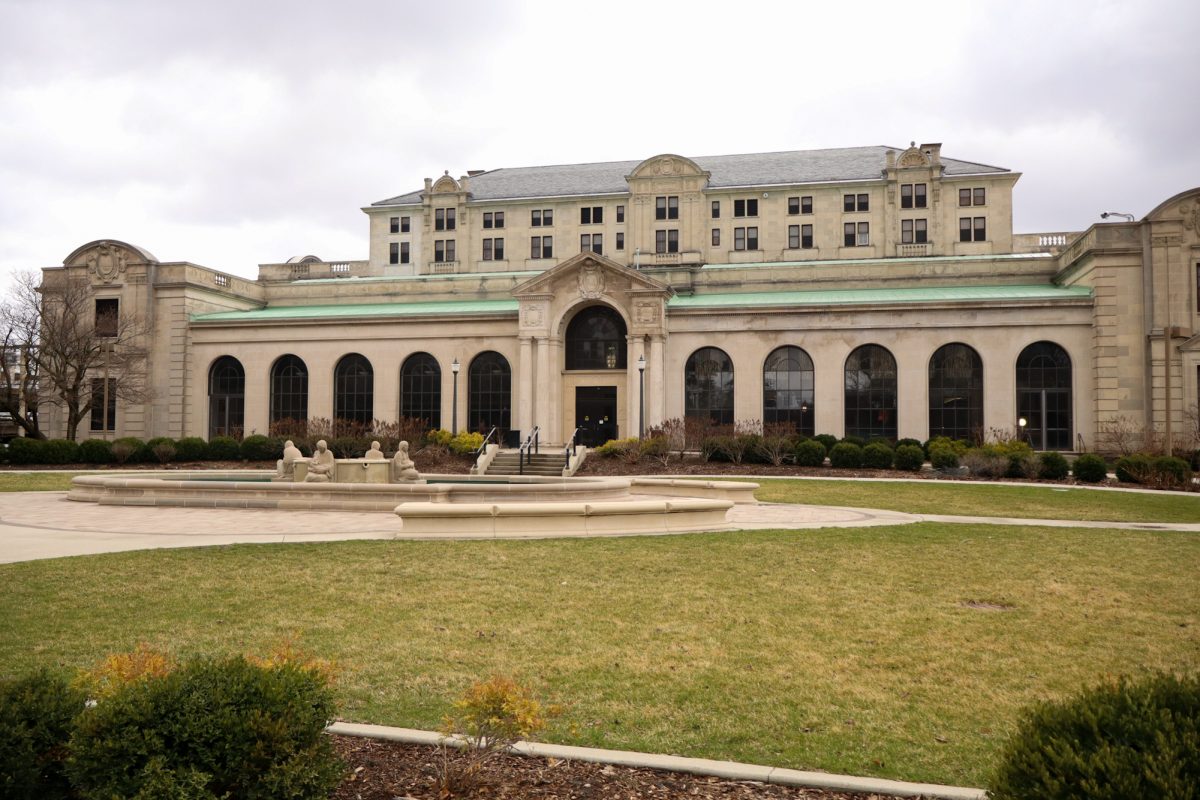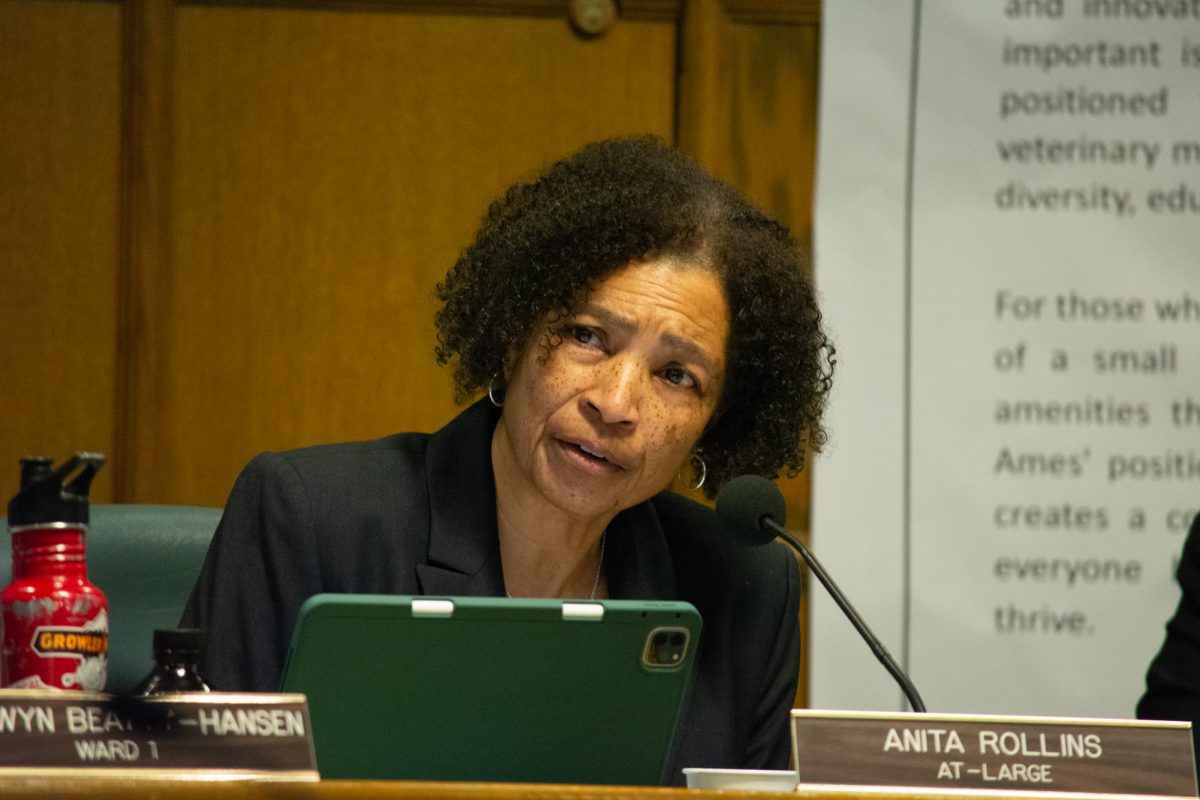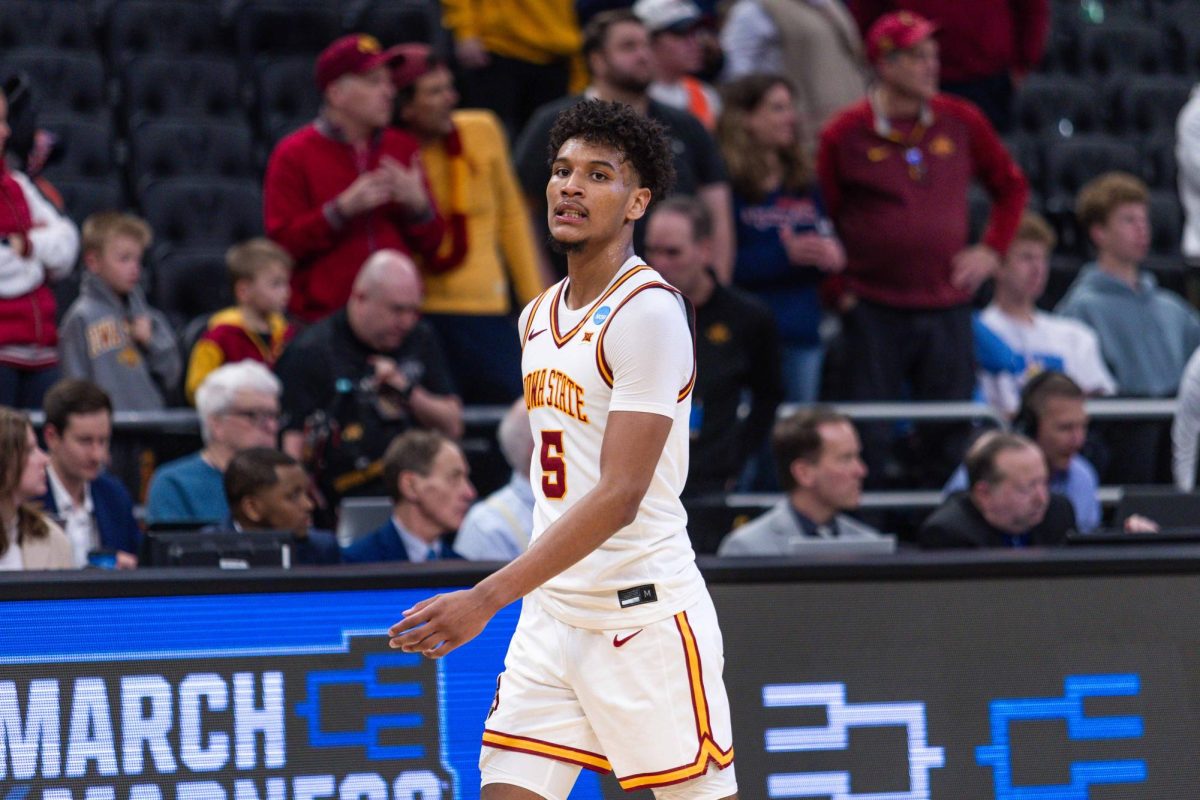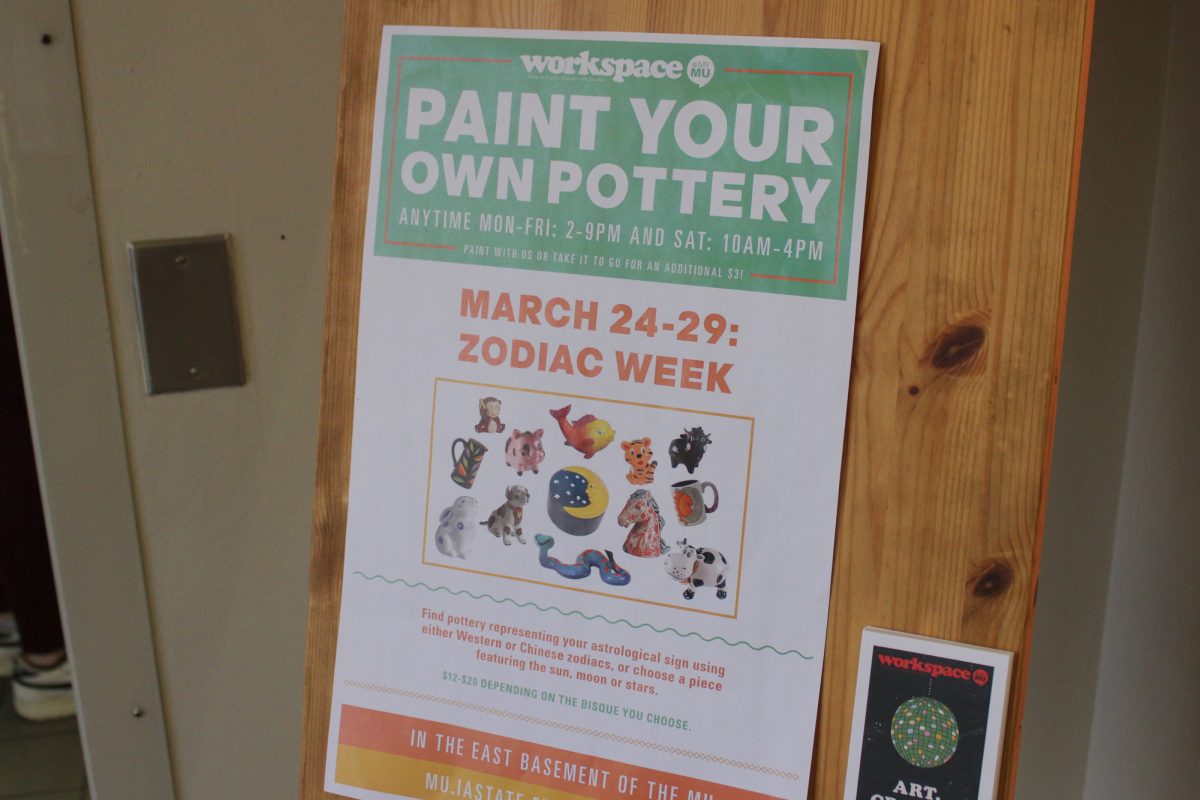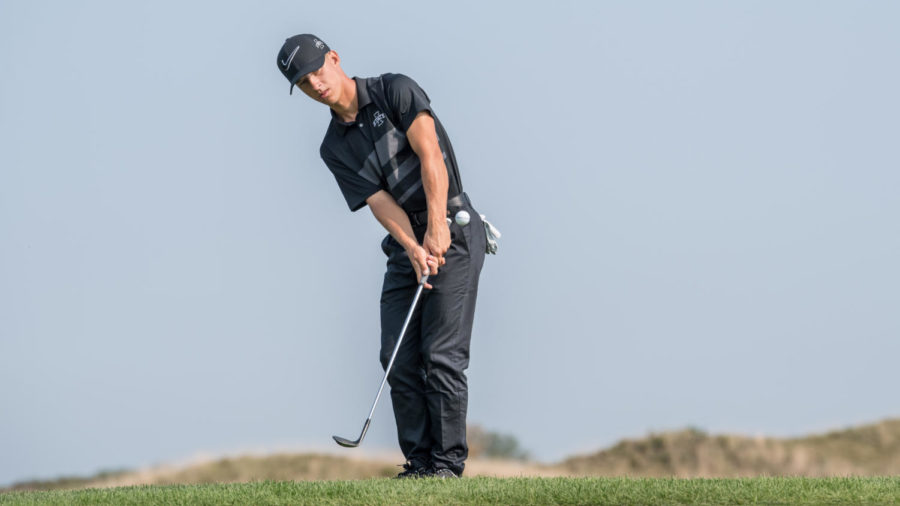Crisis in Venezuela has reaching affect on two Iowa State tennis players
October 18, 2017
As Annabella Bonadonna and Maty Cancini play collegiate tennis in the United States, their home country of Venezuela strains under economic and political turmoil.
Bonadonna and Cancini used to live normal lives in Venezuela. The two have been friends, playing tennis tournaments together, since age 10.
Bonadonna, now a sophomore, lived in the Venezuelan capital, Caracas. Cancini lived in Valencia, another large city in the South American country.
Growing up in Venezuela, the main concern for both players was a focus on tennis and academics. As time progressed, the political climate in Venezuela worsened.
Bonadonna and Cancini are no longer focused on just their personal lives.
“I can’t be selfish and just live my own life without wondering what is going on with my own family and my friends,” Bonadonna said.
Traditionally, secondary schools in Venezuela take five years to graduate according to Bonadonna. Venezuelan students today don’t have such a luxury. She said her friends’ classes are regularly cancelled due to protests and their expected time to graduate from secondary school is now eight years.
Cancini and Bonadonna’s parents all are employed in what many would consider desirable professions. Cancini’s father is a doctor and her mother works with people with special needs. Bonadonna’s parents are both engineers.
Despite having professions that usually have high salaries, both families are being severely under-compensated. Along with low pay experienced by the Cancini and Bonadonna families, inflation in Venezuela is intolerably high.
“When I was traveling all the time because of tennis, one dollar was four bolivars, that is our [currency],” Cancini said. “Right now one dollar is 39,000 bolivars.”
With the Venezuelan economy in shambles due to inflation, many Venezuelans are without medical care due to the fact that insurance companies can’t afford to pay medical bills and hospitals lack the medical supplies to care for patients Cancini said.
Cancini’s father is often left with the dilemma of caring for dying patients who can’t pay medical bills and not being able to perform surgery because the hospital is lacking the adequate supplies, all while struggling to make ends meet.
While many Venezuelans suffer and even die in a suffering healthcare system, much of the population struggles to obtain another essential component: food.
All over the country, Venezuelans line up outside grocery stores for around five hours waiting to gain access to purchase essential products like food, cooking oil and toilet paper said the two players. They also note that oftentimes, by the time Venezuelans reach the inside of a store, the food is gone.
This has created an after market where people are paid handsomely for selling food that they have acquired from stores.
Violence is a common occurrence not only inside the stores over supplies but across cities, according to Bonadonna. The violent offenders often consist of criminal and political organizations making Venezuela a very dangerous place said Cancini.
The two players said Venezuelans face this ultimatum: wait in line all day to get food, go to work to earn money or pay for expensive food from the aftermarket.
“They worry about food instead of more important things like their job,” Bonadonna said about her parents.
Rather than waste time or experience the risk of waiting in the lines, Bonadonna and Cancini’s parents elect to pay for the expensive food.
Worst of all is Venezuela’s corrupt government headed by President Nicolás Maduro.
“They don’t have any rules, they don’t have any limits, they just do whatever they want,” Cancini said.
In 2013, an election resulted in Leopoldo López, an opponent to Maduro, winning the presidential race. The government fixed the polls declaring Maduro the winner of the election. López was then swiftly arrested said Cancini.
“It’s corruption, of course, there are only [several people] running the country,” Bonadonna said. “They are destroying my country.”
According to a report by The Washington Post, government officials within Venezuela emphasized the validity of the election, but within the U.S., the Obama administration didn’t recognize the Venezuelan government and President Maduro.
Protests of the government have ensued for years yielding no results with the exception of injured, arrested and dead protestors said Cancini.
After concern of the overreaching power of Maduro’s socialist party, a majority of the positions in Venezuela’s National Assembly were filled by opposing party members during an election.
Maduro’s administration proceeded to evaporate the branch in a claim it wasn’t performing its function properly said Cancini.
Per CNN, the power of the National Assembly was transferred to a pro-Maduro Supreme Court and established that all phases of government are controlled by Maduro’s party.
“They make rules everyday,” Cancini said. “There is no one that can tell them ‘no, you can’t do that.”
Both players spoke in consensus; the current government needs to be replaced.
The U.S. government issued sanctions against the Venezuelan government, and President Donald Trump called for a “restoration of democracy” per the Los Angeles Times.
During the summer, Bonadonna remained in the United States. Here, Bonadonna had the opportunity to go to class and earn money teaching tennis. In Venezuela, she would have been just another person to feed.
Being in the United States allows the players the opportunity to have food security and protection from a corrupt government, but being separated from their families has been difficult.
Cancini and Bonadonna can only do so much to help their families aside from sending money or food. Bonadonna in particular voiced her frustrations about the inability to help. She hopes that by working together there can be a real initiative to help those in need.
Having another Venezuelan and friend in Bonadonna is helpful for Cancini. She can talk to other people about what is happening, but it is another thing to have someone who is having the same experiences.
“You see the news, you read what is going on and everything like that, but you don’t know what it feels like to be there,” said coach Armando Espinosa.
Espinosa is there if the players need to talk, but he doesn’t pry about what is going on because it can be very personal and difficult to talk about.
All Bonadonna and Cancini can wish for is to see their families. The only way they take their minds off Venezuela is with tennis.


